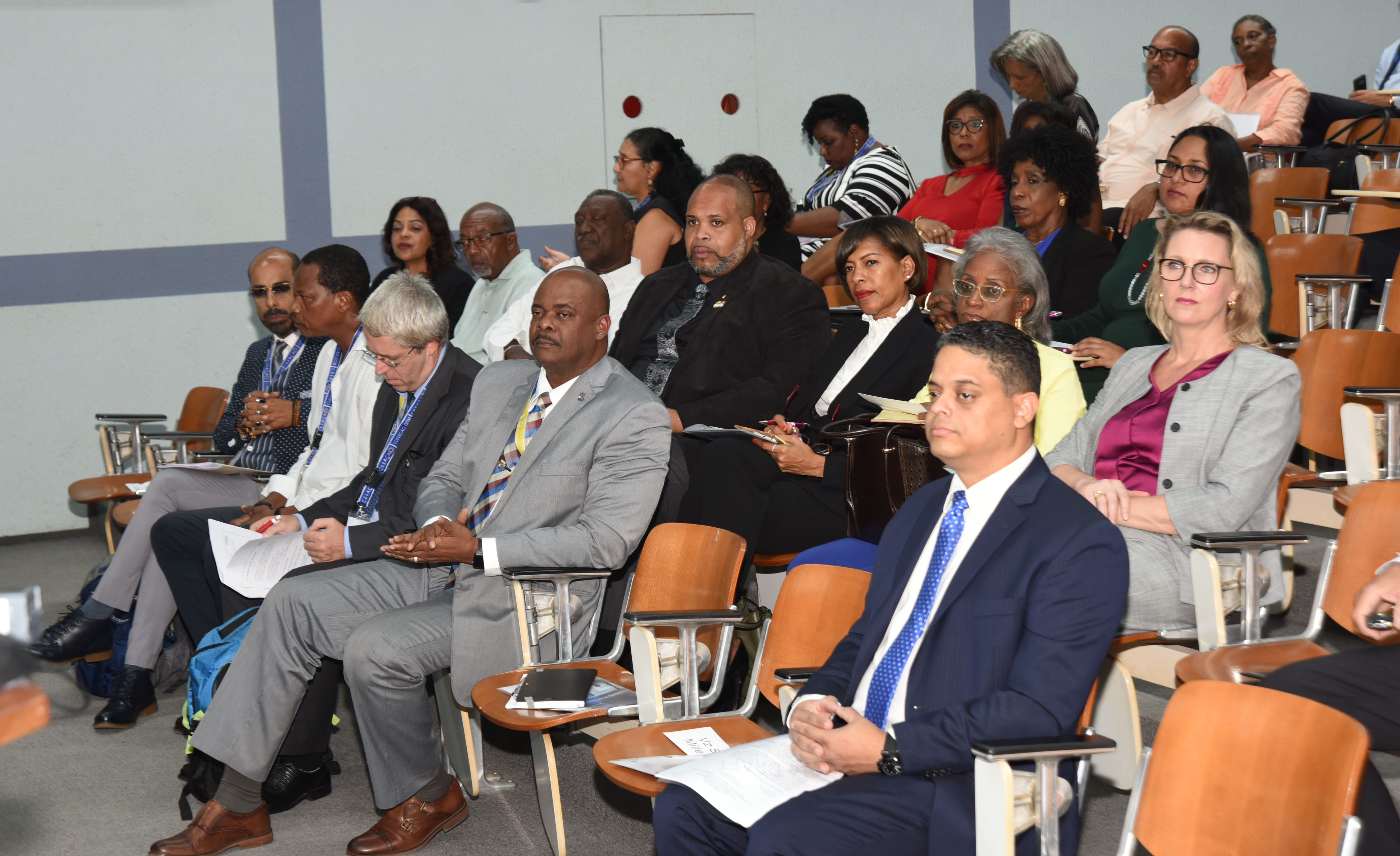“Balanced and sustainable development of Curaçao requires an open and social dialogue and collaboration on all levels”
Willemstad, 10 December 2018 – During the seminar which took place on last Thursday, on 6 of December, in the auditorium of Universidat Nashonal di Kòrsou (UoC) to commemorate the tenth anniversary of the ordinance which instituted the social dialogue and consultative body between government, as employer, and representatives of public servants, better known as CGOA (Centraal Georganiseerd Overleg in ambtenarenzaken). The Prime-Minister Mr. Eugene Rhuggenaath, in his inaugural speech, emphasized on the fact that to achieve a successful agenda to obtain a balanced and sustainable development for our country, it requires “partnerships” on all levels.
‘’In open dialogue with parties we could come to sustainable solutions, concrete agreements and act according to what has been agreed by all stakeholders. An open dialogue between parties of CGOA will show the community that the convention 151 of the International Labour Organization, ILO which was ratified by Curaçao in 2016, is not an insignificant convention, but it is something Curaçao gives real value to in the CGOA”, said the prime minister, emphazing the importance of the bipartite body’s functioning and also the convention 151 of ILO which is related to labour relations in the public service.
Furthermore, Mr. Rhuggenaath brought forward that the government gives great value to social dialogue, which was the main theme of the seminar, and that his cabinet will continue to commit itself to ‘continue fostering real dialogue and participation on subjects of general interest to create acceptance for government management.
The social dialogue, which is held periodically in CGOA between the government and union representatives of government employees on legal position of government employees and on personnel management, is to be applauded because it enriches our democracy”.
Social Dialogue as a tool to build trust
The seminar, which counted with the presence of government leaders and parliamentarians, trade union leaders and representatives of the civil society, had two experts of the ILO, Mr.Carlos Carrión-Crespo and Mr. Rainer Pritzer, as keynote speakers. They elaborated extensively on the fact that social dialogue as a tool, in any form (bipartite or tripartite) and on any level (e.g. between the employer and employee or between government and business representatives and union), is a gradual process that takes its time and is not an isolated event. Utilizing ‘Best practices” in the Caribbean region and also globally has shown that social dialogue is a strong tool to build trust.’ For social dialogue in any business, organization, country and/or region could be really effective; it must comply with four basic requirements. In the first place, parties must show respect for each other and respect each others fundamental rights. In the second place, the parties involved in the social dialogue must be strong, representative and independent. In the third place, there must be a willingness and commitment to reach effective results and last but not least the parties must count on appropriate institutional support”.
The experts of ILO, further emphasized on the benefits of social dialogue which according to the standards of ILO, it is a powerful instrument to obtain or maintain social cohesion, foster peace and social stability, promote consensus, improve working and life conditions, motivate workers, increase productivity, obtain economic progress and sustainable development and empower democracy and good governance’’.
Honoring pioneers of Curaçao
The President of CGOA prof. dr. eng. Valdemar Marcha highlighted in his speech that the seminar is also dedicated to the pioneers of trade unions and cooperatives on Curaçao, namely, dr. Moises Frumencio da Costa Gomez and father Amado Römer.

